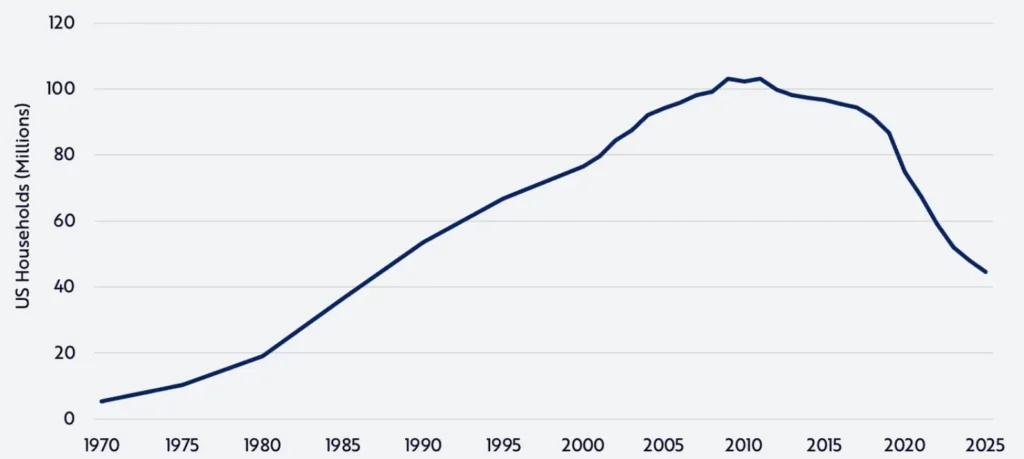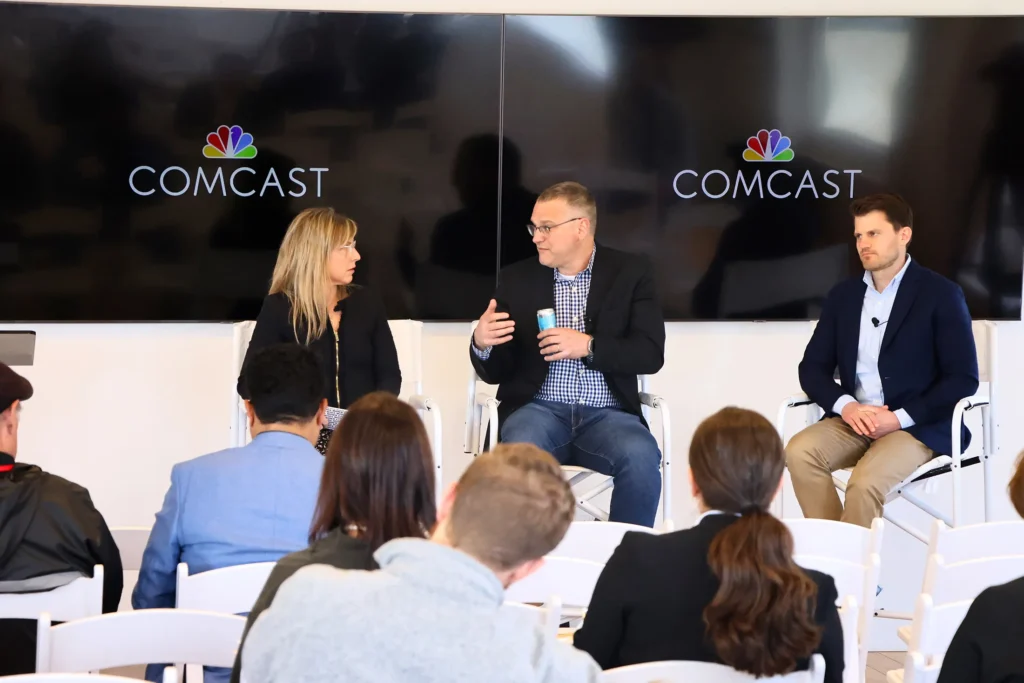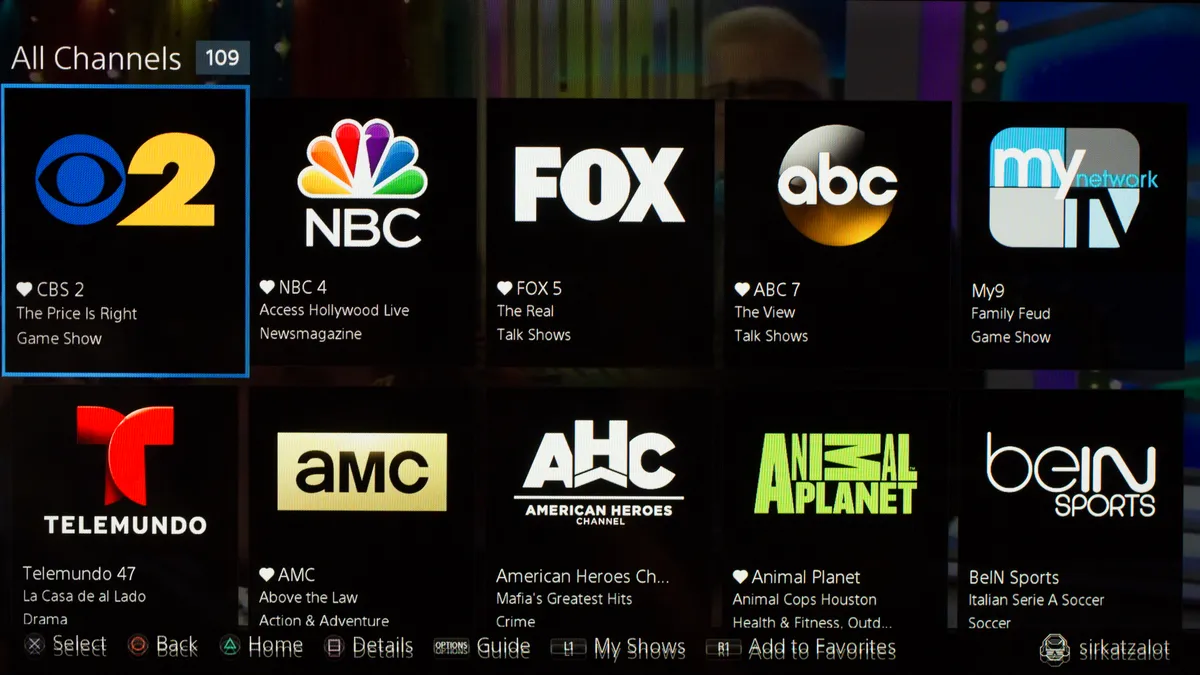In recent years, the television consumption market has undergone a significant shift.
Traditional cable TV is now facing unprecedented challenges from digital streaming platforms like Hulu, Disney, YouTube TV and many other major players!
According to a report by Pew Research Center, the number of U.S. households with cable or satellite TV subscriptions has plummeted in recent years.
In 2015, 87% of households reported having cable or satellite TV, but that number dropped to just 60% in 2023.
Comcast and Spectrum, the two largest cable providers in the United States, alone lost nearly a million TV customers in a single quarter of 2024.
The reasons behind this are basically:
- On-demand viewing: The ability to watch what you want, when you want.
- Vast content libraries: Larger selections of movies and TV shows than cable packages.
- No commercials: Many streaming services offer ad-free options.
- Lower costs: Streaming services are often significantly cheaper than cable subscriptions
Users are basically moving away from traditional TV and towards streaming services, where they can pick what they want to watch and it’s often cheaper.
Key Statistics: The Decline of Cable

- In 2022, the number of US households with traditional cable fell by an estimated 7.6 million. (Source: Leichtman Research Group)
- Streaming services now account for over a third of all television viewing time in the US. ([Source: Nielsen] (https://www.nielsen.com/))
- Major cable companies like Comcast and Charter have been steadily losing subscribers for years.
Cable TV’s Are Trying to Adapt

To combat subscriber loss, many cable companies are adopting a multi-pronged approach.
One of the most noticeable strategies they are following is offering streaming bundles combining traditional cable packages with access to popular streaming services like Netflix or Hulu.
They are also developing hybrid services that combine traditional cable channels with their own on-demand libraries.
And the good thing is, many cable companies are now realizing that, we (customers) are simply looking for a more affordable option.
So, to cater to this budget-conscious demographic, they’re offering lower-priced, slimmed-down cable packages that include a smaller selection of channels at a lower price point.
Experts Weigh In
Though cable TV won’t disappear entirely, it’s unlikely to remain the primary source of television for most households.
Michael Smith, a media analyst, believes cable TV will cater to a specific audience.
He says.
“Cable TV will likely appeal to older viewers who are accustomed to traditional linear television and may have difficulty navigating the complexities of streaming services,”
Michael Smith
Also, some live sports fans may continue to subscribe to cable for access to exclusive broadcasts.
But, for most viewers (including me), streaming services offer a more compelling value proposition, with greater flexibility, personalization, and often at a lower cost.
The Future?

It’s impossible to pin down an exact obsolescence date.
Technology and consumer behavior are unpredictable. However, the cable TV we know is undeniably on a path of irreversible decline.
And the trend is clear!
The future of television lies in internet-based delivery, on-demand content, and increased personalization.
Viewers will have access to a vast library of content from around the world, with the ability to watch shows and movies whenever they want and on any device.
Artificial intelligence will play a role in suggesting content based on a viewer’s watching habits, and interactive features could allow viewers to participate in shows or influence storylines.
On the other hand, virtual reality (VR) and augmented reality (AR), such as Apple’s Vision Pro, could become more integrated with television, creating even more immersive viewing experiences.

